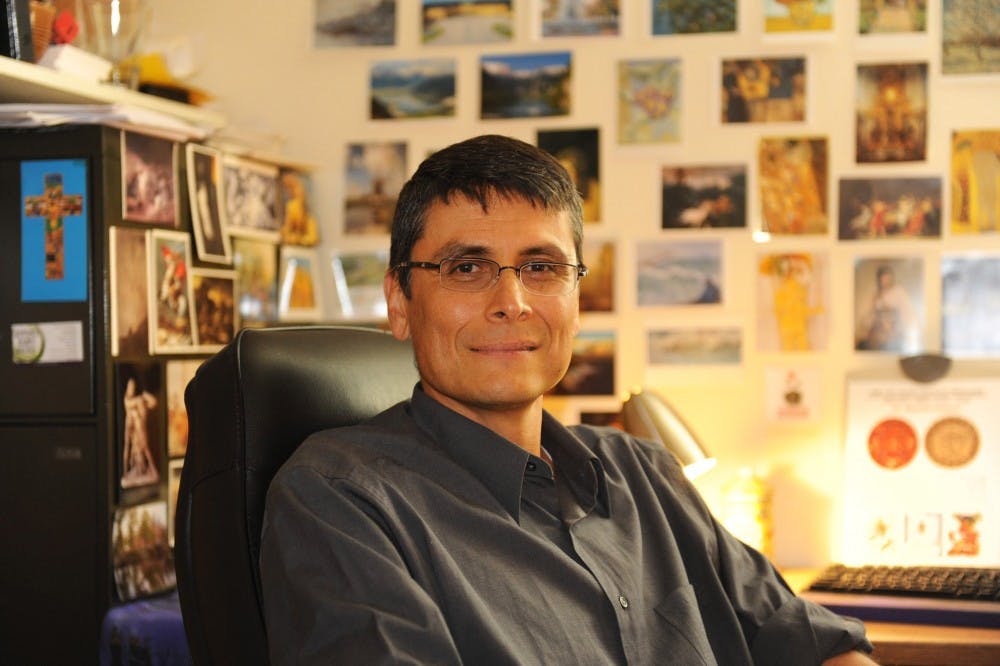Christine Menges |
Students who want to explore ancient Greek and Roman contributions to Western society have the opportunity to do so this semester with the new Hellenic studies minor.
Alejandro Santana, philosophy professor and director of the minor, said Hellenic studies offers an interdisciplinary approach to studying Western civilization. Students minoring in Hellenic studies will take classes in political science, philosophy, theology, fine arts, drama and mathematics. They can even cross-register at Portland State University or Reed College to take Classical Greek courses.
In addition to a wide range of classes, Santana believes there is another benefit to the minor: having a greater understanding and appreciation of Western culture.
“Just think about democracy. Where did it get its birth place? Greece. Think about the architecture of Washington, D.C. It has its roots back in classical architecture,” Santana said.
Santana said the inspiration for the minor came three years ago after E. John and Cleo Rumpakis gave the University a grant to promote the study of the classics. Santana and other professors have spent three years creating the minor since receiving the funding.
The initial parts of the process, Santana said, involved brainstorming ways to use the grant in a way that would meet student, faculty and University needs. Once a solid blueprint for the minor was in place, the official process began.
“The next year was running it through all the administrative hoops to get it approved by the Academic Senate and in the bulletin,” Santana said.
Although the minor was officially established, the process isn’t finished because right now, only two students are planning on adding it.
“And now we’re in the advertising phase,” Santana said with a chuckle. “We’re trying to advertise it to students, to let them know that the minor exists.”
Bohn Lattin, a professor of communication studies, currently teaches Argumentation and Advocacy, a course that will be included in the minor. He believes this class will help students improve their appreciation for Western culture.
“When you take a look at the way in which our legislatures are set up, and when you take a look at our judicial system, it’s all based on a Greco-Roman idea of finding the truth through debate,” Lattin said.
Bill Curtis, a political science professor, teaches Ancient and Medieval Political Thought, which will also be included in the minor. The course examines ancient philosophers like Plato and Aristotle, as well as medieval philosophers like Thomas Aquinas and St. Augustine who derived their thinking from ancient Greeks.
Curtis also believes a grounding in classical studies will educate students more about the Western approach to political science.
“The Greek ideals still inspire us, and we trace a lot of the way we think about political problems back to ancient Greek democracy,” Curtis said.
Lattin hopes students won’t scoff at Hellenic studies because of the antiquity of the subject.
“Explore it before you dismiss it,” Lattin said.
Christine Menges is a reporter for The Beacon. You can contact her at Menges15@up.edu or on Twitter @ChristineyBird.








